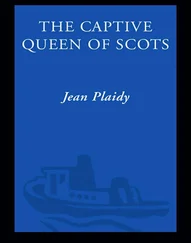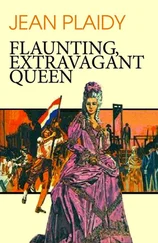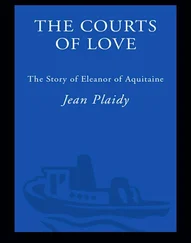Виктория Холт - A Favorite of the Queen - The Story of Lord Robert Dudley and Elizabeth 1
Здесь есть возможность читать онлайн «Виктория Холт - A Favorite of the Queen - The Story of Lord Robert Dudley and Elizabeth 1» весь текст электронной книги совершенно бесплатно (целиком полную версию без сокращений). В некоторых случаях можно слушать аудио, скачать через торрент в формате fb2 и присутствует краткое содержание. Жанр: Исторические любовные романы, на английском языке. Описание произведения, (предисловие) а так же отзывы посетителей доступны на портале библиотеки ЛибКат.
- Название:A Favorite of the Queen: The Story of Lord Robert Dudley and Elizabeth 1
- Автор:
- Жанр:
- Год:неизвестен
- ISBN:нет данных
- Рейтинг книги:5 / 5. Голосов: 1
-
Избранное:Добавить в избранное
- Отзывы:
-
Ваша оценка:
- 100
- 1
- 2
- 3
- 4
- 5
A Favorite of the Queen: The Story of Lord Robert Dudley and Elizabeth 1: краткое содержание, описание и аннотация
Предлагаем к чтению аннотацию, описание, краткое содержание или предисловие (зависит от того, что написал сам автор книги «A Favorite of the Queen: The Story of Lord Robert Dudley and Elizabeth 1»). Если вы не нашли необходимую информацию о книге — напишите в комментариях, мы постараемся отыскать её.
A Favorite of the Queen: The Story of Lord Robert Dudley and Elizabeth 1 — читать онлайн бесплатно полную книгу (весь текст) целиком
Ниже представлен текст книги, разбитый по страницам. Система сохранения места последней прочитанной страницы, позволяет с удобством читать онлайн бесплатно книгу «A Favorite of the Queen: The Story of Lord Robert Dudley and Elizabeth 1», без необходимости каждый раз заново искать на чём Вы остановились. Поставьте закладку, и сможете в любой момент перейти на страницу, на которой закончили чтение.
Интервал:
Закладка:
Jean Plaidy
A favorite of the Queen
Author’s Note
In writing of what is undoubtedly one of history’s most puzzling relationships, it is perhaps advisable to add a few remarks in order to justify the conclusions to which I have come. This is particularly the case with regard to the mysterious death of Amy Robsart.
All that happened on that Sunday morning at Cumnor Place will never be known. Was Amy’s death due to accident, suicide, or murder? After studying available records my verdict cannot be anything but murder.
Consider the facts: The Queen was being pressed by her ministers to marry. She could not bear to forgo the attentions of Robert Dudley, and Robert could not give up the hope of sharing the throne. Thus Robert’s wife Amy stood in the way of two ruthless personalities. The Queen, in politics the soul of caution, had always been reckless in love. Scandal was circulating throughout the country concerning the relationship of Elizabeth and Robert Dudley. People remembered Thomas Seymour. Before Amy died there was a strong rumor that her death was being planned; and when it was said that Amy was suffering from a fatal malady, many believed that to be a false rumor set in motion in order to explain the death which was to follow. So persistent were the rumors, that a physician refused to attend Amy, fearing to be accused of administering poison should she die. This was the state of affairs when her minister, Cecil, returning from Edinburgh, found the Queen strained and nervous, and, to his astonishment, heard from her lips that Amy would soon be dead. Cecil, appalled, hurried from the Queen, and was so distraught that, coming face to face with the Spanish ambassador, he could not keep his suspicions to himself. “The Queen and Lord Robert Dudley are scheming to put Lord Robert’s wife to death!” is what he said—according to the Spanish ambassador. And a few hours later Amy was found dead.
Why should the Spanish ambassador have written those revealing dispatches if the contents were untrue? Spain was no enemy of Robert’s at that time, and Robert had won Philip’s approval at St. Quentin.
An accident to Amy resulting in her death at such a time so convenient to Elizabeth and Robert is surely too incredible a coincidence to be accepted.
As for the suggestion of suicide, if Amy had wished to kill herself would she have chosen a method which, she must have known, might not result in death, but merely add acute pain and misery to her remaining years? Would any woman destroy herself in such a painful way in order to avoid being murdered?
Everything points to murder, apart from Amy’s strange conduct on that Sunday morning in sending all her servants to the Fair. Why did she—in perpetual fear of murderers—clear the house of all the servants on that day which was to prove so tragic to her?
I have looked to her maid Pinto for the explanation, because from her first came the suggestion of suicide. It seemed that this suggestion came simply and unwittingly from Amy’s maid; but was Pinto such a simpleton? What if the suggestion were not wrung from her, but deliberately given? Might she not have known the true reason why the house was deserted on that Sunday morning? Let us consider what a woman would do when the whole country was hinting that she was about to be murdered. How would a devoted maid behave? As for my interpretation of Pinto’s feelings for Robert, it must be remembered that, during his two and a half years’ exile, he had lived in Norfolk and would have come into continual contact with Pinto; and if we can discover little of Pinto’s character, we know much of Robert’s.
It is the novelist’s task to present a convincing story and, when the characters actually lived, to adhere to facts obtained by research, only diverging from them with good reason, e.g., when they are unknown, and then only making careful and responsible deductions as an aid to the completion of the story. Therefore I offer my views of what happened at Cumnor Place in the summer of 1560.
To reach these conclusions—and others—I have studied many books and documents. The chief among these are:
Calendar of Letters and State Papers (Spanish) relating to English affairs preserved principally in the Archives of Simancas. Published by the Authority of the Lords Commissioners of Her Majesty’s Treasury under the direction of the Master of Rolls. Edited by Martin A. S. Hume, FR Hist S.
Elizabeth and Leicester. Milton Waldman.
Queen Elizabeth. J. E. Neale.
Lives of the Queens of England. Agnes Strickland.
Queen Elizabeth (Brief Lives). Milton Waldman.
Natural and Domestic History of England. William Hickman Smith Aubrey.
British History. John Wade.
Old and New London. Edward Walford.
England in Tudor Times. L. F. Salzman, MA, FSA.
King Queen Jack (Philip of Spain Courts Elizabeth). Milton Waldman.
Two English Queens and Philip. Martin Hume, MA.
History of England. J. A. Froude.
ONE
It was hot, even for August; the foul odors from the river, carrying the threat of pestilence, hung in the sullen air that sultry day; but the crowds who were assembling on Tower Hill were oblivious of discomfort. Traders had left their shops or stalls in Candlewick Street, East Chepe, and the Poultry; horse-dealers were coming from Smithfield Square; the goldsmiths from Lombard Street, the mercers of Chepeside had deserted their houses, realizing that there could be little business at such a time. Apprentices, risking a whipping, crept out after their masters, determined to see what could be seen on Tower Hill that day.
Laughing and jesting they came. All men and women believed that the hardships of Henry VII’s reign were behind them and the days of plenty were at hand. No more cruel taxes would be wrung from them; no more fines; no more impositions. The old miser King was dead and in his place was a bonny golden boy who laughed loudly, who jested and made sport, and loved to show himself to the citizens of London.
It was he who had provided this day’s pleasure for them; and it clearly indicated what they might expect of him.
“God bless King Hal!” they cried. “See how he pleases his people! He is the one for us.”
The cheers for the King mingled with the jeers for the traitors. Some apprentices had made two effigies which they held high above the crowd, to be mocked and pelted with refuse.
“Death to them! Death to the extortioners! Death to the misers, and long life to King Harry!”
Jostling, cursing, laughing, they surged about the hill. At the summit, close to the scaffold, members of the nobility were gathered. The bell of St. Peter ad Vincula had begun to toll.
At the edge of the crowd, not venturing into it, stood a boy. He was pale, soberly dressed, and was staring, mournful and bewildered, at the weather-washed walls of the great fortress which seemed to stand on guard like a stone giant. So grim, so cruel did it seem to the boy, that he turned his gaze from it to the green banks where the starry loosestrife flowers were blooming. He remembered a day—long ago it seemed to him now—when he had taken his little brother to the river’s edge to pick flowers. He remembered how they had strolled along, arms full of blossom. The flower of the water betony was like the helmet a soldier would wear, and he was reminded that soldiers would soon be coming out of the great prison, and with them would be the men who were to die on Tower Hill that day.
“Death to the traitors!” shouted a man near him. “Death to the tax-gatherers! Death to Dudley and Empson!”
The little boy felt the blood rush to his face, for his name was John Dudley, and his father was one of those who would shortly lay their heads upon the block.
Читать дальшеИнтервал:
Закладка:
Похожие книги на «A Favorite of the Queen: The Story of Lord Robert Dudley and Elizabeth 1»
Представляем Вашему вниманию похожие книги на «A Favorite of the Queen: The Story of Lord Robert Dudley and Elizabeth 1» списком для выбора. Мы отобрали схожую по названию и смыслу литературу в надежде предоставить читателям больше вариантов отыскать новые, интересные, ещё непрочитанные произведения.
Обсуждение, отзывы о книге «A Favorite of the Queen: The Story of Lord Robert Dudley and Elizabeth 1» и просто собственные мнения читателей. Оставьте ваши комментарии, напишите, что Вы думаете о произведении, его смысле или главных героях. Укажите что конкретно понравилось, а что нет, и почему Вы так считаете.











